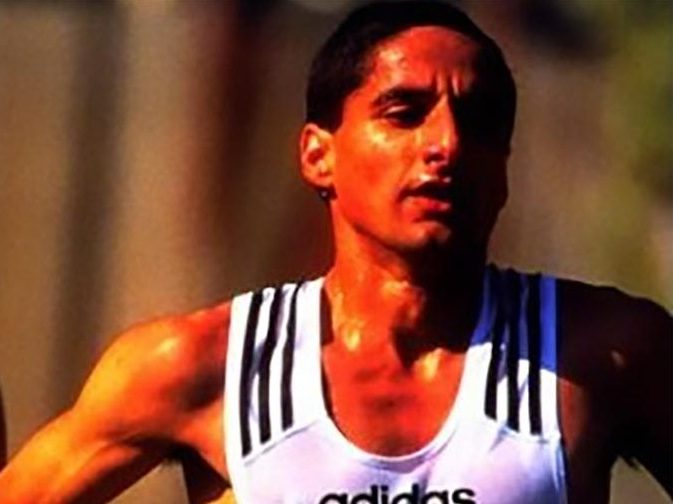ULTRA RUNNER: ALISON WALKER
Alison started ultra running in 2019 and her key achievements to date include a 9:40:40 100km, 4:08:25 50k and a 185.9km 24 hour (still to be improved). She holds the fastest times over numerous ultra distances in Malaysia. She has also recently achieved a 3:17:59 marathon PB on a multi-terrain course.
I’ve known Alison for a few years now. When she first started running regularly I saw a lot of her in clinic with various problems including a fairly significant ankle ligament injury. As Alison has progressed into ultra running over the past 18 months or so, she has been extremely dedicated to her training and has (unlike many) prioritised regular strength & conditioning work in her weekly training schedule that I think has helped her stay largely injury-free in recent times and allow her to train consistently and improve hugely as a runner.
How did you get involved in running?
I first started running for more social reasons having moved to London without knowing many people. I thought it would be a good way to make friends.
How did you progress/get into ultrarunning?
I got a bit bored of chasing times for the marathon and I quite liked running all day at a sedate pace, so I started to look into ultras. Ultras also had a more social aspect to it – competitors talk to each other during the race! After my first 100 miler in a storm, I figured I was actually pretty decent at this ultra thing so kept going.
I started with a coach, Peter McHugh, who established Run-Fast and runs the Tuesday night track sessions at Mile End in November 2018 who continues to guide me through my ultra and marathon journey.
What would a typical training week in a build-up to an ultra-marathon look like? (e.g. mileage/sessions etc)
My typical training week normally involves about 100 miles and the sessions in the week depending on the length of the ultra. On a peak week, this can go up to 120 miles, but this is often followed by a ‘cut’ week. I do not have a rest day, and all my runs are at least 60 minutes.
For shorter ultras, there will be more speed work involved. As a general rule, I do track on Tuesdays, tempo on Thursdays, hills on Saturdays and a long run on Sunday. Tuesday and Thursday are also double run days, so I often do my speedwork slightly fatigued. Some of the longer Thursday speedwork can involve a 100 minute fartlek (excluding warm up and cool down).
Sometimes when I am training for longer ultras like 24 hour races, we do back to back long runs of 50km, so the Saturday hill session will make way for that.
What sort of races do you like to include in an ultra-marathon build up and how far out from race day?
My coach doesn’t believe in over-racing, so we only have one build-up race before the A race. Usually, this is 6 weeks before race day depending on what is available in the ultra calendar.
Before my 100km in January, I ran a multi-terrain marathon as a tune-up race after Christmas so that both my coach and I could gauge fitness/what to aim for in the A race. We normally do not taper for these build-up races and go in slightly fatigued.
A lot of my long training runs involve a marathon/50k too, but removing the race aspect from the distance means that I don’t overexert and risk potentially not recovering in time for the A race.
How much rest and sleep to you get when you are in an ultra build up?
I generally get 8-9 hours sleep every night. On weekends I try to have an afternoon nap!
Do you follow a specific diet when training?
Cake. Lots of cake.
Do you complete regular strength and conditioning exercises (including mobility/technique drills and stretching)?
I have a 1 hour strength session every week, and my programme is tailored by Andy Reay who changes my exercises every 5-6 weeks so that I don’t get bored. This includes a lot of single-leg work, trap bar work, hamstring and glute work etc.
What role does physio/massage/osteo play in your training? (not asking for any flowers to be blown anywhere…)
Whenever I get a niggle or feel like something is not smooth, I immediately book an appointment with Scott. I am very lucky to not have had any injuries for the last 18 months, but I am very disciplined in doing my S&C, listening to my body and getting help before anything gets too sinister.
I have a good relationship with Scott and talk through my niggles before establishing whether we need a session and I listen to his advice when he says to drop the intensity or not run…
Do you rotate your footwear for different sessions throughout the week?
I have 3 pairs of shoes on the go – two more cushioned shoes and one slightly faster shoe for track/tempo.
Do you have any mental preparation strategies for your racing?
I do a lot of my training solo and I think that helps in ultra running as you’re often running on your own. I also try and plan my nutrition pre-race (following a nutritional disaster on my last 24h race) so I know that’s dealt with. I’m not very good at pre-race weather freaking though… this could be improved!
How have you adapted your training and goals with the current COVID-19 restrictions in place?
With COVID-19 I’m now just running once a day for fun, with no real pressure. I am still managing 100-mile weeks (with much more elevation) and only doing one long tempo a week as the track is shut! As for goals… many of my races are cancelled but no training is ever wasted so I’m just continuing to grind as much as I psychologically can. I’ve also been doing a zoom Pilates class and continuing my S&C (which is adapted, as I don’t have a trap bar or heavy weights at home)!
I hope that you found Alison’s training insight interesting.
If you’re having any niggles or if you’re interested in improving your performance and would like to be connected with a UKA qualified coach, then get in touch with me at [email protected]
Happy running and keep safe.
Cheers
Scott


